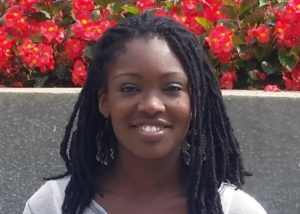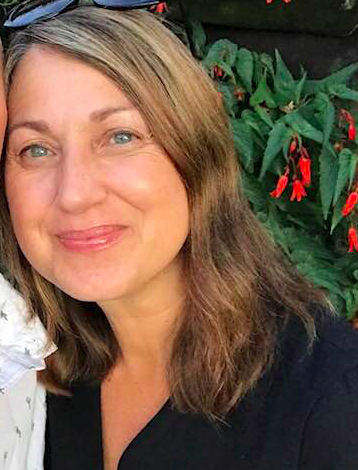“You won’t colonize my values”: Collective memory-work as communal healing practice
In this session, we consider how we can work across disciplinary and epistemological orientations to explore the possibilities of collective memory-work (CMW) (Haug, 1987, 1999; Hamm, 2018) for communal healing and emancipatory politics that can speak to the challenges we face in our imperfect multiracial democracy in the U.S. We contend that resistance to colonizing narratives and discourses in education is vital for personal and collective healing. Any movement towards authentic justice in education requires an acknowledgement of colonization as at the root of the educational project in the U.S. While this is undeniably a systemic issue that requires a systemic solution, we as educators can and must strive to resist these colonizing narratives and discourses in our own pedagogies.
As a feminist research methodology, CMW gives us important tools for unearthing the colonizing narratives, both historical and contemporary, that shape the way we experience the world, and by extension, our teaching practices. Dominant narratives reproduce power dynamics and constrain new systems from arising thereby maintaining the status quo of marginalization and oppression. The challenges of the twenty-first century are often framed as “new,” but many of them are rooted in the systemic oppression of the past. Therefore, we need to develop radically transformative practices for imagining a more just future with the potential to create healing-centered practices and systems that uphold the humanity of all students and that abolish violent and oppressive systems.
We draw on the work of Frigga Haug’s (1987; 1999) work in CMW, its uses for revealing power dynamics, and its ability to help us hone our resistance to colonizing narratives and discourses in education. We also ask in what ways can Black feminisms lay bare the potential for a critical analysis of the colonizing narratives and discourses in education (Davis, 1983; Hill-Collins, 2009, 2016; Labaton & Martin, 2004; Smith, 2000; Taylor, 2017). We contend that the ability to intentionally reflect and hone our recognition, and assume our refusal, of colonizing narratives and discourses is the necessary first step to both resistance and healing in our pedagogies in our current systems of marginalization and oppression.
Question for discussion:
Resistance to colonizing narratives and discourses in teaching requires the ability to recognize them within policies, curricula and pedagogical practices. This is necessary for all teachers, across all markers of identity. How can we as educators sharpen our reflective abilities in the service of resistance to colonizing forces in education, in an effort to move towards healing practices? In so doing, we will draw on the following principles: Principle #1: Collective trauma is transformed collectively; Principle #2: There is no single model of care; Principle #3: Healing strategies are rooted in place and ancestral technologies (Hemphill, 2024). question as a collective memory work practice to engage in a communal healing practice.
Session activity:
We will share some colonizing narratives with which we have wrestled in our personal and professional lives. We would do this in an embodied way, by reading aloud memories of moments when we felt resistance to these narratives in our bodies, or moments when resistance seemed impossible. Conceptualizing collective memory work as a healing practice, we would invite others to share their own memories of their own embodied memories.
References
Davis, A. Y. (1983). Women, race & class (1st Vintage Books ed.). Vintage Books.
Fenwick, L. T. (2022). Jim Crow’s pink slip: the untold story of black principal and teacherleadership. Harvard Education Press.
Hamm, R. (2020). Symposium Collective Memory-Work (2021). Other Education, 9(1), 374-377.
Hamm, R. (2018). Collective Memory-Work–a Method Under the Radar?. Other Education, 7(2), 118-124.
Haug, F. (1987). Female sexualization: A collective work of memory. London: Verso.
Haug, F. (1999). Memory-work as a method of social science research: A detailedrendering of memory-work method. Available at: http://www.friggahaug.inkrit.de/documents/memorywork-researchguidei7.pdf. Site accessed on July 8, 2014.
Hemphill, P. (2024). What it takes to heal: How transforming ourselves can change the world.Random House.
Hill Collins, P. (2009). Black feminist thought : knowledge, consciousness, and the politics ofempowerment (2nd ed.). Routledge.
Bilge, S., & Collins, P. H. (2016). Intersectionality. Cambridge, UK: Polity.
Kelley, B. L. (2023). Black folk: The roots of the Black working class. Liveright Publishing.
Labaton, V., & Martin, D. L. (2004). The fire this time : young activists and the new feminism. Anchor Books.
Meiners, E. R. (2002). Disengaging from the legacy of Lady Bountiful in teacher education classrooms. Gender and Education, 14(1), 85-94.
Smith, B. (1998)The Truth That Never Hurts : Writings on Race, Gender, and Freedom. Rutgers University Press.
Smith, B. (2000). Home girls : A Black feminist anthology. Rutgers University Press.
Taylor, K-Y. (2017) How We Get Free : Black Feminism and the Combahee River Collective. Haymarket Books.
For info on Keitha-Gail Martin-Kerr, see here.

Bisola A. Wald has taught across PreK-12 and higher education settings, focusing on culturally responsive, differentiated elementary education and Spanish language instruction. As a Ph.D. candidate in Curriculum and Instruction and African American and African Studies at the University of Minnesota, she mentors preservice and inservice teachers. Her research examines Afrocentric education, Black educators, and culturally sustaining pedagogies. Integral to her work is collective memory as a site of Black historical consciousness and collective sensemaking, particularly among Black women, through oral histories, ancestral knowledge, and shared lived experiences that challenge intersecting systems of oppression and reclaim suppressed African knowledges.

Dr. Colleen H. Clements is a lecturer in the critical social foundations of education, whose scholarly work primarily concerns a critical examination of the construction and performance of idealized white femininity as a racialized identity in white, hetero-normative, patriarchal U.S. society and its relation to teaching in both formal and informal learning spaces.
In much of her work, Colleen draws on her background in theatre in her use of performance studies and arts-based methodologies in her inquiry to examine the cultural and social role of dominant and counter-narratives in shaping human experience. Colleen came to the University of Minnesota after numerous years working in theatre, as both a teacher and actor. In addition to her PhD in culture and teaching, she holds a MFA in theatre.